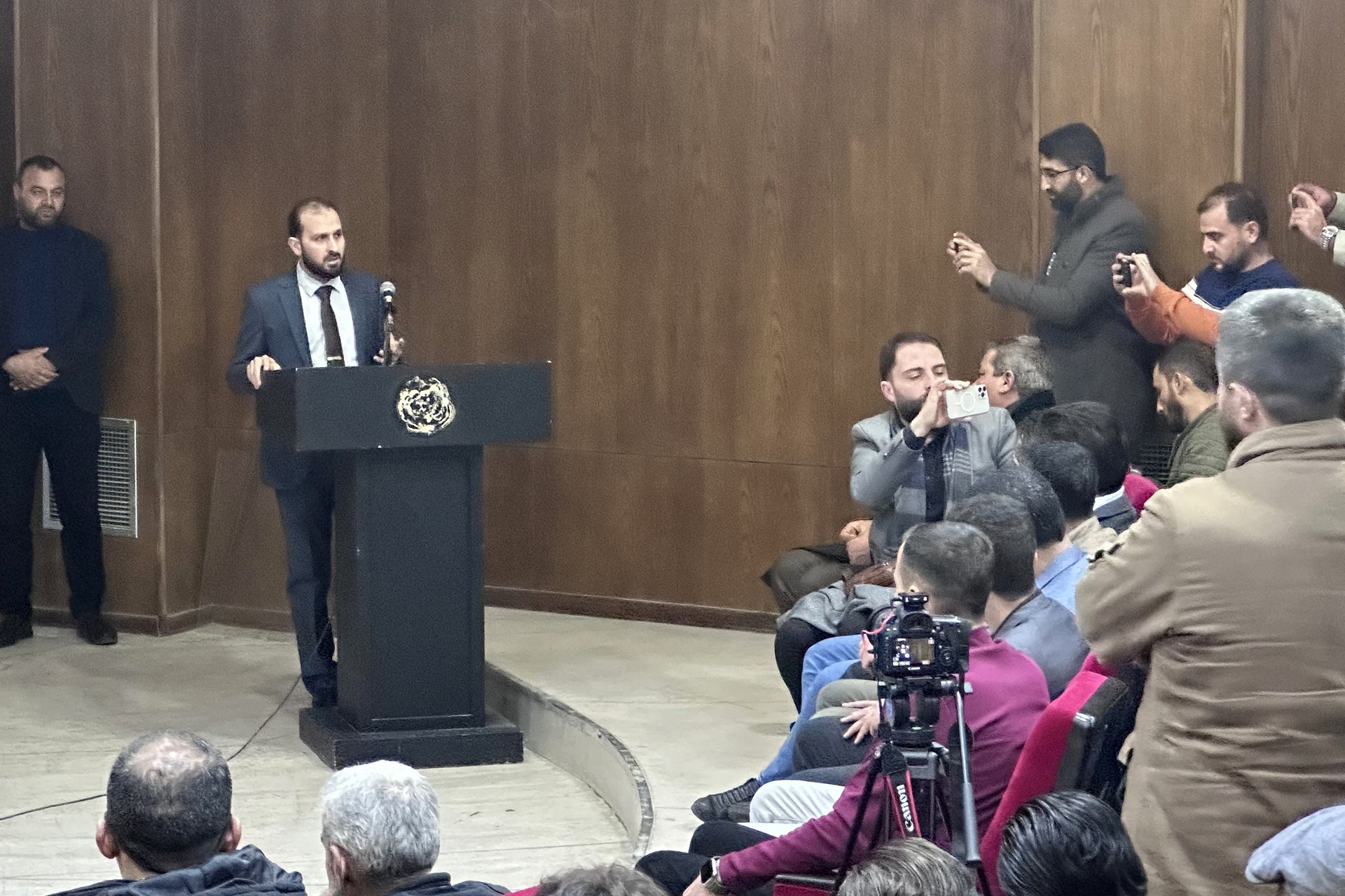
Syria's minister of information in the country's transitional government told Agence France-Presse (AFP) that he is working toward a free press and committed to "freedom of expression" after decades of tight control under the country's former rulers.
"We are working to consolidate freedoms of the press and expression that were severely restricted" in areas controlled by the former government of Bashar al-Assad, said the minister, Mohamed al-Omar, after opposition-led forces on Dec. 8 ended more than five decades of rule by the Assad.
Syria's ruling Baath party and the Assad family dynasty heavily curtailed all aspects of daily life, including freedom of the press and expression, with the media as a tool of those in power.
Reporters Without Borders, a freedom of information watchdog, ranked Syria second-last on its 2024 World Press Freedom Index, ahead only of Eritrea and behind Taliban-ruled Afghanistan.
"There was a heavy restriction on freedom of the press and expression under the regime, which practiced censorship. In the period to come, we are working on the reconstruction of a media landscape that is free, objective, and professional," Omar said during an interview with AFP on Tuesday.
He is part of the interim administration installed in Damascus by the victorious opposition coalition led by Hayat Tahrir al-Sham. Diplomats from around the region and from the West have made contact with Syria's new rulers, who have also vowed to protect the country's religious and ethnic minorities.
Omar was previously minister of information in the self-proclaimed Salvation Government, the civil administration set up in 2017 by Hayat Tahrir al-Sham (HTS) in the opposition forces holdout of Idlib province in Syria's northwest.
It was from Idlib that the opposition forces began their lightning advance toward Damascus, 13 years into the country's civil war.
After the conflict erupted in 2011 with the government's brutal repression of pro-democracy protests, Assad tightened restrictions on independent journalism.
"We don't want to continue in the same way, that is, have an official media whose aim is to polish the image of the ruling power," Omar said.
Following Assad's overthrow and flight to Moscow, Syrian media outlets, which had trumpeted his regime's glories, quickly adopted revolutionary fervor.
On Tuesday, Omar held an exchange with dozens of Syrian journalists to discuss the transition.